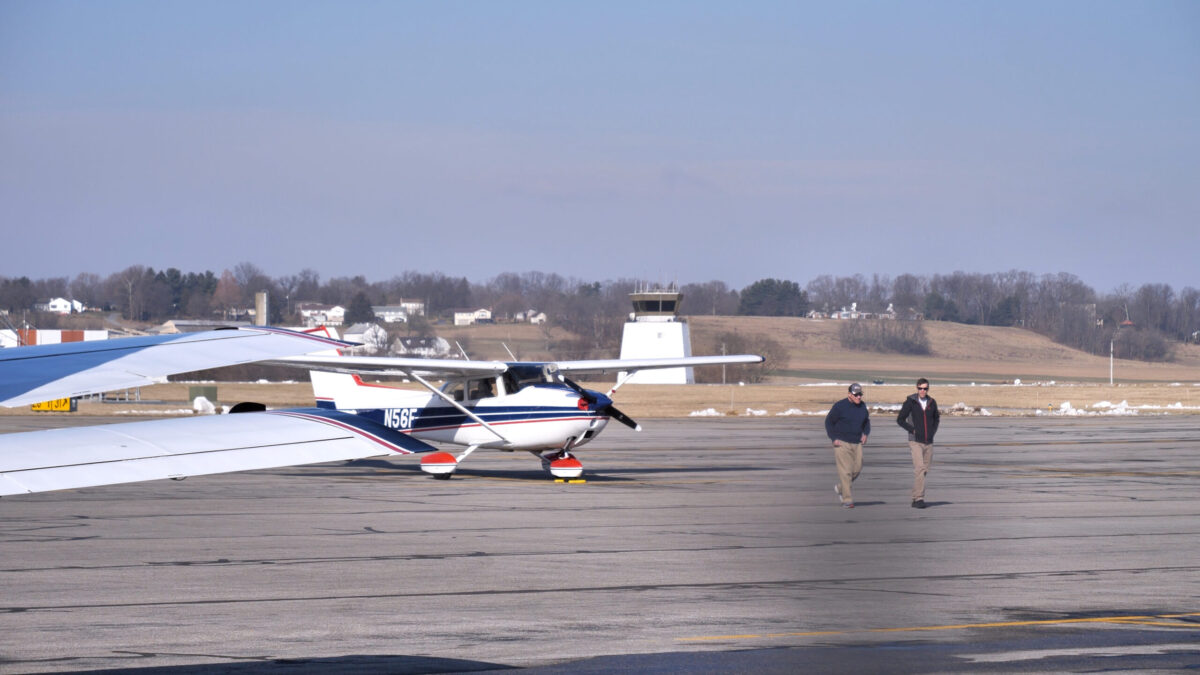To obtain your medical certificate, you will need to go through an FAA Medical Exam that covers a physical examination checking areas such as your eyesight, hearing, lung function and others, which can only be conducted by an FAA-designated Aviation Medical Examiner, or AME.
All airman must meet the minimum standards under 14CFR Part 67 for their medical certificate type and do not have any of the disqualifying medical conditions under 14 CFR Part 67.
An FAA Medical Exam can only be conducted by an FAA-designated Aviation Medical Examiner, or AME.
While a third-class medical is all that is required for flight training itself, if you plan to grow your flight career, we recommend getting a full first-class airman medical certificate.
Let’s look at what is required by the FAA for an Airman Physical Exam.
Who is required to have an FAA Medical Certificate?
FAA medical exams are required for the following people in three types of medical certificates:
- First Class: Airline Transport Pilot
- Second Class: Commercial Pilot, Flight Engineer, Flight Navigator and Air Traffic Control Tower Operator-does not include FAA employee air traffic control specialists
- Third Class: Private pilot, Recreational pilot, Student pilot
According to the FAA, “an applicant may apply and be granted any class of airman medical certificate as long as the applicant meets the required medical standards for that class of medical certificate. However, an applicant must have the appropriate class of medical certificate for the flying duties the airman intends to exercise.”
For example, an applicant who exercises the privileges of an airline transport pilot (ATP) certificate must hold a first-class medical certificate. That same pilot when holding only a third-class medical certificate may only exercise privileges of a private pilot certificate.
It is important to note that for third-class medical certificates, if you are exercising pilot privileges under BasicMed (or exercising any pilot privilege in a balloon or glider), you are not required to hold a medical certificate.
What is covered in an FAA medical examination?
FAA medical exams usually last 30-45 minutes and are mostly documentation.
As would be expected, there are additional requirements or standards for Class 1 & Class 2 certificate holders.
First Class:
- Distant Vision: 20/20 or better in each eye separately, with or without corrective lenses
- Intermediate Vision: 50 years and older, 20/40 near vision with or without correction
- Near Vision: 20/40 in each eye, with or without correction
- Color Vision: The necessary colors for the safe performance of duties
- EKG: Starting at age 35 and annually after age 40 an electrocardiogram (EKG) is required
- Hearing: must demonstrate the ability to hear an average conversational voice in a quiet room at a distance of 6 feet and understand speech at an acceptable level (determined by an audiometry test)
Second-Class:
- Distant Vision: 20/20 or better in each eye separately, with or without corrective lenses
- Intermediate Vision: 50 years and older, 20/40 near vision with or without correction
- Near Vision: 20/40 in each eye, with or without correction
- Color Vision: The necessary colors for the safe performance of duties
- Hearing: must demonstrate the ability to hear an average conversational voice in a quiet room at a distance of 6 feet and understand speech at an acceptable level (determined by an audiometry test)
Third-Class:
- Distant Vision: 20/40 or better with or without correction
- Near Vision: 20/40 in each eye, with or without correction
- Color Vision: The necessary colors for the safe performance of duties
- Hearing: must demonstrate the ability to hear an average conversational voice in a quiet room at a distance of 6 feet and understand speech at an acceptable level (determined by an audiometry test)
Anytime you report something new on the FAA medical application, such as new medical condition, medications, or visits to health professionals outside of routine visits, you should at least provide your AME with a basic report from your treating doctor providing some background on the condition or medication that you’re reporting.
Duration of FAA Medical Certification
The duration of your FAA medical certificate is dependent on the type of certificate you obtain (First, Second or Third class) and your age.
| FAA Medical Certificate Durations | |||
| Privileges | Under the Age of 40 | Age 40 and Over | |
| First-Class | Airline Transport Pilot | 12 Months | 6 Months |
| Second-Class | Commercial Pilot | 12 Months | 12 Months |
| Third-Class | Private Pilot | 60 Months | 24 Months |
| BasicMed | Private Pilot | 60 Months | 24 Months |
When a certificate of higher class expires, it reverts to the lower-class certificate for the remaining duration, depending on age.
For example, if an airman over age 40 has a First-Class certificate that expires after 6 months, his or her certificate would revert to a Second Class certificate for the remaining 6 months, then to a Third Class certificate for the 12 months that remain after that.
To learn more about the FAA medical exams and certifications, visit the FAA’s website.
Where to get an FAA physical exam?
CNS offers FAA physical exams for all classes at our location in Lititz, PA with our Aviation Medical Examiner (AME).
For more information, contact us at 800.551.9816 or info@cnsoccmed.com.










